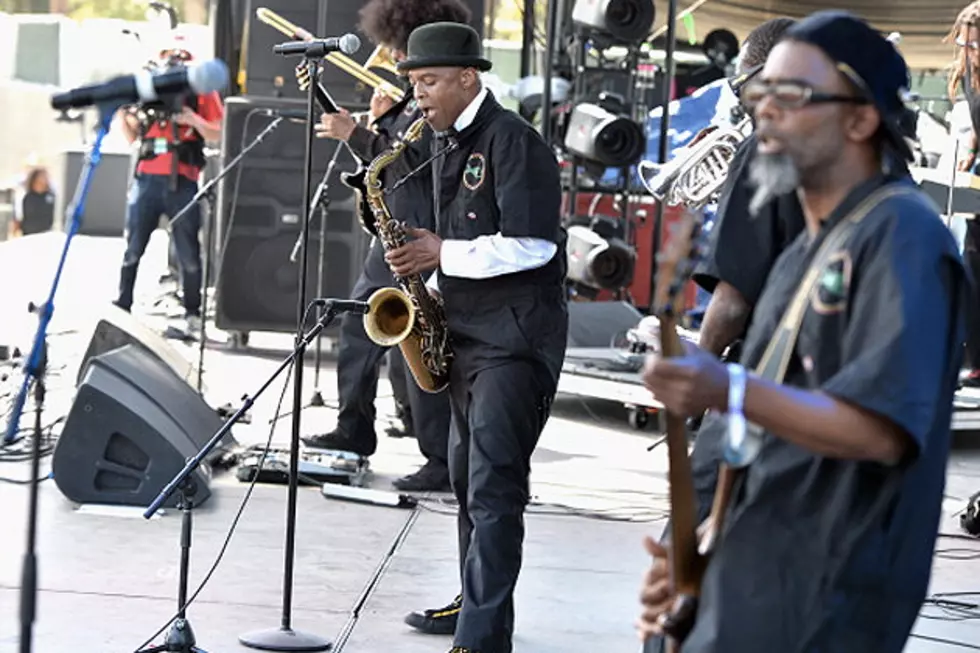
The Dead Milkmen’s Joe Jack Talcum Discusses ‘Pretty Music for Pretty People’
Of all the members of the Dead Milkmen, guitarist and singer Joseph Genaro, a.k.a. Joe Jack Talcum, has been the most active since the bandmates went their separate ways in 1995. He continued to write and record under various names, like Butterfly Joe, and with another band, the Low Budgets.
Genaro and his fellow Milkmen, now including Low Budgets bassist Dan "Dandrew" Stevens, came together in 2008 to play a reunion show. The next thing the world knows, there's a new Dead Milkmen album, 'The King In Yellow,' in 2011. They just released their second album since reuniting, 'Pretty Music for Pretty People.' Joe Jack told us how things have changed since the old days, including songwriting duties and fans who come to see them perform.
How are the songwriting duties split up? Does one person usually come up with music or lyrics, or is it spread out among all the members?
We each have our own computers, of course, and we record stuff on them. And then send them, or put them in Dropbox, or send them through email. And they can be in various states. Rodney [Anonymous] will write a complete song a lot of times. And he’ll also finish ideas that Dean [Sabatino, drummer] and I start, or I’ll finish an idea that Dean started, or something. Dean throws lyrics out there, or Dandrew has a … for example, Dandrew had the ‘Meaningless Upbeat Happy Song’ music written exactly as it is on ‘The King In Yellow,’ and Rodney put lyrics to it.
The Dead Milkmen have always had a bit of a dark streak, but this album in particular sounds a little darker -- maybe a little heavier -- than what we might be used to hearing.
Yeah, it’s a little darker in tone, I would say. It’s kinda morbid, a lot of the stuff, disasters and death. [Laughs]
The music is a little different, too. The songs get heavy here and there.
It might be Rodney’s influence with his love for gothic, industrial music, stuff like that. I play a lot more distorted guitar than I used to. I bought a lot of distortion pedals, and I like to use them in different ways to make distorted sounds. Earlier, in the old version of the Milkmen, I would have one distorted sound and one clean sound, and not too many other things, maybe a chorus here or there.
How did recording 'Pretty Music for Pretty People' work?
It’s different because the way we always worked before was, we’d have an album’s worth of songs, maybe even a few more, and we’d do a little pre-production work or whatever. We go record all the drums, get all the drums sounding good, and you know, record the album that way. And then mix it all in one big mixing session. But it’s nice to break things down into little chunks. Then, we record one day, just three songs. We record all the basic tracks and overdubs, all in that one day. And the next day, come and mix three songs and then you’re done. That helps when you can have something [immediate] to listen to.
What sort of fans are you seeing at Milkmen shows now?
We see lots of people from the old days. Sometimes they bring the kids, sometimes not. We see kids who came to see us because their parents had us in their record collection. It’s a mix. We see some new people, some babies.
Have you planned ahead for what's next, music-wise?
No plans at all. Just gonna take it as I see it.
The Dead Milkmen -- 'Pretty Music for Pretty People'
More From Diffuser.fm









